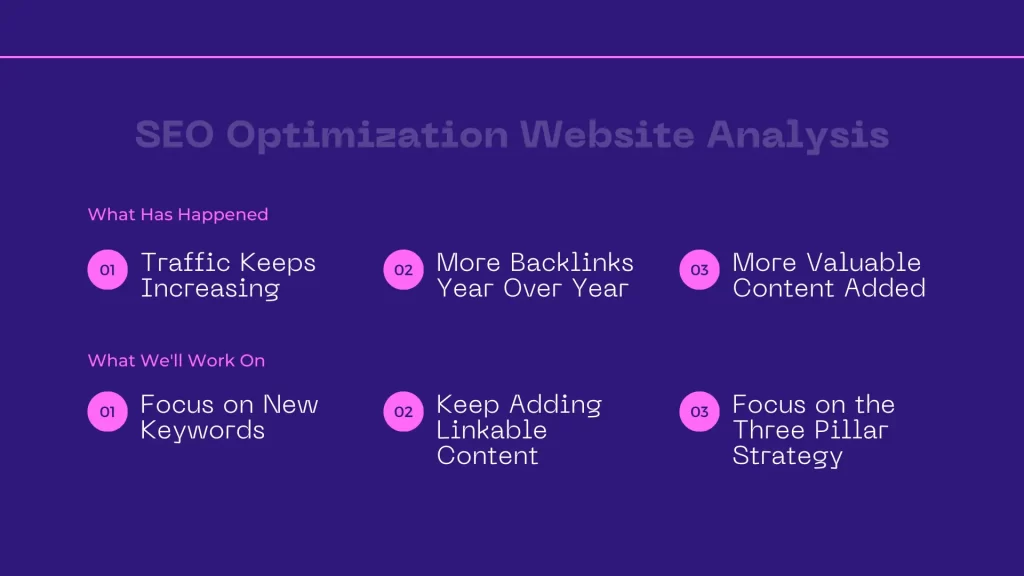SEO Optimization Website Analysis
Unlock the full potential of your online presence with SEO optimization website analysis. This comprehensive process involves examining various aspects of your site to identify areas for improvement, ensuring it ranks higher in search engine results. By analyzing elements such as keywords, metadata, content quality, and backlinks, you can understand what’s working and what needs refinement. This holistic approach not only enhances your visibility but also drives organic traffic, leading to increased engagement and conversions.
Engaging in SEO optimization website analysis is like giving your site a thorough health check-up. By leveraging advanced tools and expert insights, you can uncover hidden issues that may be hindering your site’s performance. Whether it’s optimizing your on-page elements or improving your site’s speed and mobile responsiveness, these enhancements contribute to a better user experience. As search engines favor sites that offer valuable and relevant content, a well-optimized website stands out in the crowded digital landscape, attracting more visitors and ultimately boosting your business’s bottom line.
Introduction to SEO Optimization Website Analysis
In the digital landscape, mastering SEO optimization is paramount for achieving online success. Central to this endeavor is conducting thorough website analysis to uncover strengths, weaknesses, and opportunities for improvement. This guide aims to provide a comprehensive overview of SEO optimization website analysis, empowering website owners and marketers to enhance their online visibility and performance.
Understanding SEO Optimization and Website Analysis
SEO optimization involves the strategic process of optimizing a website to improve its visibility and ranking on search engine results pages (SERPs). Website analysis, on the other hand, encompasses the assessment of various elements of a website to identify areas for enhancement in terms of SEO, user experience, and overall performance.

The Importance of Website Analysis in SEO Optimization
Website analysis serves as the foundation for effective SEO optimization. By thoroughly evaluating different aspects of a website, such as keyword usage, technical setup, and user engagement metrics, businesses can develop informed strategies to enhance their online presence and attract relevant traffic.
Key Metrics and Factors in Website Analysis
Successful website analysis involves delving into various key areas:
4.1. Keyword Research and Analysis: Conducting in-depth keyword research and analysis is essential for identifying relevant search terms that align with your target audience’s intent and interests.
4.2. On-Page SEO Analysis: Evaluating on-page elements such as title tags, meta descriptions, and content quality to ensure they are optimized for target keywords and user engagement.
4.3. Off-Page SEO Analysis: Assessing backlink profiles, social signals, and online reputation to gauge the website’s authority and credibility in the eyes of search engines.
4.4. Technical SEO Audit: Reviewing technical aspects such as site speed, mobile-friendliness, and crawlability to ensure optimal performance and indexing by search engines.
4.5. User Experience (UX) Evaluation: Analyzing user behavior metrics, site navigation, and accessibility to enhance the overall browsing experience and engagement.
4.6. Competitor Analysis: Studying competitors’ strategies, keywords, and backlink profiles to identify opportunities and gaps for improvement.
Tools for Conducting Website Analysis
Several tools are available to aid in website analysis, including Google Analytics, Google Search Console, SEMrush, Ahrefs, Moz, and Screaming Frog. These tools provide valuable insights and data to facilitate thorough evaluation and optimization efforts.
Strategies for Improving SEO through Website Analysis
Based on the findings of website analysis, implementing targeted strategies is crucial for driving SEO optimization. This may include optimizing meta tags, improving site speed, enhancing content quality, building quality backlinks, and enhancing overall user experience.
Case Studies: Successful Implementation of Website Analysis
Examining real-world examples of businesses that have leveraged website analysis to improve their SEO performance can offer valuable insights and inspiration for implementing similar strategies.

Common Mistakes in Website Analysis and How to Avoid Them
- Ignoring mobile optimization: With the increasing prevalence of mobile browsing, neglecting mobile optimization can hinder SEO performance.
- Focusing solely on keywords: While keywords are important, overlooking other aspects such as user experience and technical SEO can limit overall effectiveness.
- Neglecting ongoing analysis: SEO is an ongoing process, and regular website analysis is essential for staying ahead of the competition and adapting to changes in the digital landscape.
Future Trends in SEO Optimization and Website Analysis
As technology continues to evolve, so too will the strategies and tools used in SEO optimization and website analysis. Embracing emerging trends such as voice search optimization, artificial intelligence, and user-centric design will be key to staying ahead in the ever-changing digital landscape.
SEO optimization website analysis forms the backbone of a successful SEO strategy. By understanding the importance of thorough analysis, leveraging the right tools and strategies, and staying abreast of future trends, businesses can enhance their online visibility, attract relevant traffic, and achieve sustainable growth in the competitive digital marketplace. This guide serves as a roadmap for navigating the complexities of website analysis and SEO optimization, empowering businesses to maximize their online potential and thrive in the digital age.
